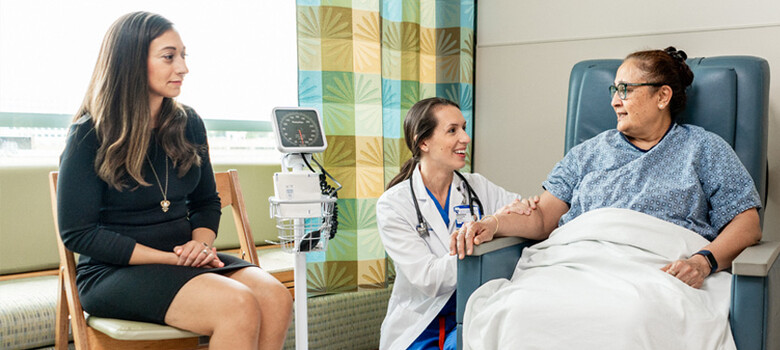Can I Get Pregnant if I Have a Heart Condition?

If you have a heart condition and want to get pregnant, it’s understandable if you’re concerned. Pregnancy puts extra demands on your heart, which can increase the risk of heart problems during pregnancy. Choosing a medical team that specializes in caring for pregnant people with heart disease can help you manage those risks so you have a healthy pregnancy and baby.
Jerome Jeff Federspiel, MD, PhD is a maternal-fetal medicine specialist and part of Duke Health’s cardio-obstetric team. Here he answers questions you may have about getting pregnant with a heart condition.
Is it safe to get pregnant if I have a heart condition?
If you have a heart condition and are considering getting pregnant, the extra stress on your heart may put you at higher risk of complications. That’s because during pregnancy, your heart is “pumping for two,” Dr. Federspiel said. In addition, certain hormonal changes during pregnancy can affect blood pressure and blood vessels. While the risks vary based on your heart condition, “for most people who have a heart condition, pregnancy is an option that we can help people safely navigate,” he said.
Can pregnancy make my heart condition worse?
Pregnancy can worsen maternal heart conditions and sometimes can affect how a baby grows and develops. For these reasons, pregnant people with heart conditions receive the best care during pregnancy when they have a team of providers with expertise in both high-risk pregnancy and cardiology.
Are some pre-existing heart conditions riskier than others during pregnancy?
Yes. Some heart conditions such as mildly irregular heartbeats or previously repaired small holes in the heart may carry little to no increased risk of complications in pregnancy. Others, such as heart failure, pulmonary hypertension, and aortic disease can significantly increase the risk of complications. “For the vast majority of folks who have heart disease, pregnancy is a safe option,” Dr. Federspiel said. However, “there is a small percentage of folks where the risk is so high, we don’t typically recommend becoming pregnant.”
Is there a time during pregnancy when the risks are higher?
The third trimester and the weeks following birth are typically the riskiest times for a pregnant person with a heart condition. As the baby grows, so does the demand on your heart to supply the baby with blood and oxygen. After birth, the sudden change in circulation can also cause problems.
What should I do if I want to get pregnant and have a heart condition?
If you have a heart condition and are thinking about becoming pregnant, talk to your doctor first. “Before someone becomes pregnant, we'd love to meet with them to identify the heart condition we're facing together and what pregnancy might look like with that condition,” said Dr. Federspiel. Meeting with a doctor before conceiving allows time to discuss pregnancy care, make sure medications for treating heart disease are compatible with pregnancy, and complete any testing recommended to make sure the heart is in the best condition possible before becoming pregnant.
How can I make sure I have a safe pregnancy if I have a heart condition?
A combined cardiology and high-risk obstetric team will ensure you have the best care for your condition. Duke Health’s team includes maternal-fetal medicine specialists, cardiologists with special training in treating women with heart disease, obstetric anesthesiologists, heart surgeons, and a perinatal nurse navigator as your point of contact. They work together and meet monthly to discuss your care. “Our team expands to meet your needs,” said Dr. Federspiel. “Some people will need care from other Duke Health teams. At Duke we bring together all the specialists needed for comprehensive care.”



